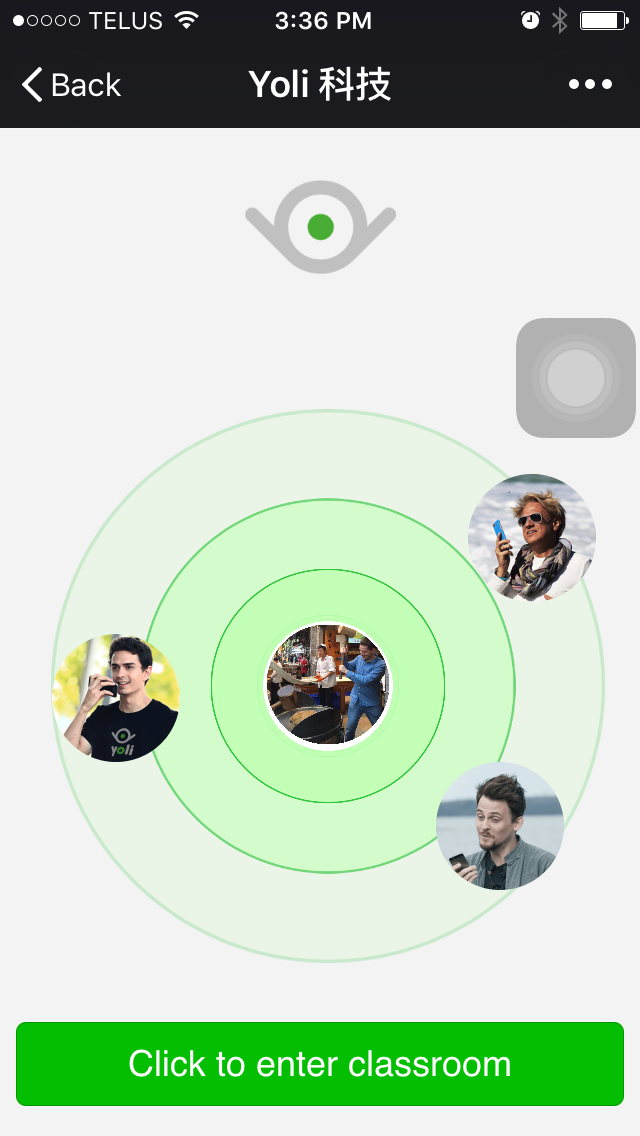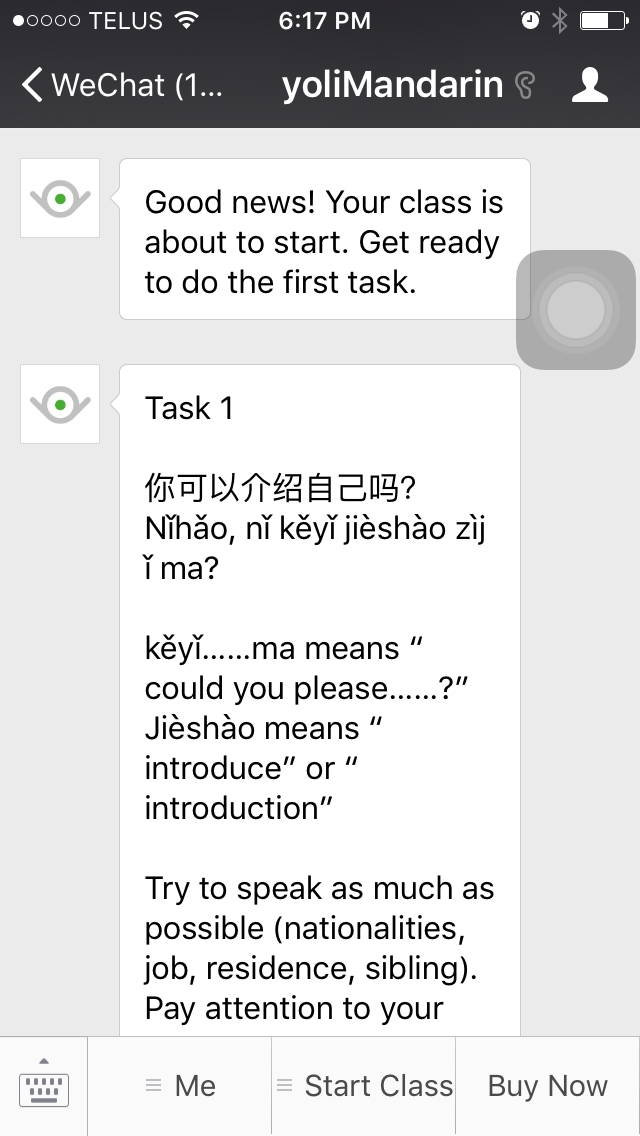Mandarin Monday: The Key to Improving Your Putonghua May Already Be In Your Pocket
While we waste time thumbing through selfies and memes on our moments, or visiting clickbait sites or staring at neverending cat gifs, we could instead be improving our Mandarin in fun, simple fashion.
At least that's the claim being made by a firm called Yoli, which has developed bite sized Chinese classes that users can quickly and easily access via WeChat. Describing itself as "a Mandarin teacher in your pocket" these on-demand WeChat Chinese classes accommodate all levels, can easily be shared with your anyone in your social media network, and are followed up with readily downloadable PDF's for review purposes.
While this may be a novel idea to many expats, savvier Chinese WeChat users have long been using similarly popular mobile learning apps and functions to augment their English learning, some of the most popular of the bunch being Vipabc, the similarly named Vipalearn and Xindongfeng Yingyu (which has teachers available 24 hours per day for students to study from).
I recently decided to give Yoli Mandarin a try for myself, to see if it lived up to that promise. Users start by scanning the function's QR code (you can find the QR here or below).
This immediately adds yoliMandarin to your officials accounts. Newbie, beginner and intermediate levels are immediately presented (which suited an embarrassingly poor Mandarin speaker like myself just fine, though left me wondering about how irked my higher level expat pals might feel if they tried the function).


From there, the function searches for available teachers among its roster (a process that takes a few moments), and after that you're WeChatting with your Chinese teacher in real time. It didn't get off to a promising start, because the function's promise to find a teacher in five minutes was subsequently followed by a message saying "all our teachers are busy now." To be fair, I was overseas for the holidays and it was in the dead of night Beijing time, but I still expected more preparedness on the part of this supposedly top-notch new WeChat function (honestly, could they not have hired a few Chinese teachers residing overseas to be ready in this very situation, or hire more teachers on call so that the app can be used right away?).
After waiting until early morning Beijing time I tried again, and was met with two more similar delays (the app telling me, again, that all the teachers were busy). Finally, after my third attempt, the free trial lesson was ready to begin. This wasn't a major issue for me, because I was just sitting at home, but users hoping to quickly and easily take a lesson while on the move or on their commute (a major selling point mentioned again and again in the app's marketing) would quickly grow impatient with such issues, or arrive at their destination before they're even able to begin the lesson. Let's hope that these issues can be attributed to early bugs and kinks that need to ironed out in the system (similar to the initial issues I dealt with when the MoBike app first became available this past summer). However, if such flaws aren't resolved soon, then this app is doomed to failure.

The lesson itself was quite enjoyable and effective, though far from flawless. It began with some simple instructions and a straightforward task (in this case, teaching me how to ask someone to introduce themselves). After repeating the vocabulary words via the WeChat voice message function, the teacher answered me with a voice message of her own, correcting my pronunciation of some words in a patient fashion, while complimenting my pronunciation otherwise. Her friendly demeanor was a definite attribute, and the system's automatic warning that the lesson will end in five minutes was also a nice touch. The teacher was evidently a living, breathing soul (I was worried that I might get stuck with some sort of bot), responding to my specific questions in real time. In a mere 15 minutes it was hard to tell how professional or qualified she was, but her patient and steady approach, along with her straightforward correction of my major pronunciation mistakes, left me quite pleased.
However, the task and overall content were too simple even at the beginner level (it should have been reserved for the newbie section). Also, despite its lack of complexity, the 15 minute lesson time felt pretty insufficient to dig into content. In a way this may be a good thing, because it leaves the user wanting more and craving the next lesson, but an option for a 30 minute lesson would also nice and satisfy a broader range of users. The exchanges of voice messages make the lessons well suited for oral communication, but little else. Overall though, it does what it promises – teaching the user a snack-sized lesson that they can digest on their commute or coffee break (as long as the delay for the teacher's availability is fixed, of course).

After the trial lesson, users can pay an RMB 999 fee for 20 one-on-one 15 minute classes. Fifty kuai a pop when you can find Chinese teachers for around 70 an hour seems pretty steep to me (and the month-long expiration date on those purchased classes is even less appealing; there's also the option of unlimited classes for 180 days for RMB 9,999. Stingy users like myself would prefer a cheaper option (or less pricey alternative for that matter), but users with more disposable income and long commutes and plenty of work related travel will likely love the option to study while on the go with these mobile Chinese lessons. Of course I should adjust my attitude and cough up the money – then I wouldn't have the excuse to skip out on studying, because quick access to Chinese learning would literally be at hand, which can never hurt.
More stories by this author here.
Email: kylemullin@truerun.com
Twitter: @MulKyle
WeChat: 13263495040
Photos: TechNode, Yoli







